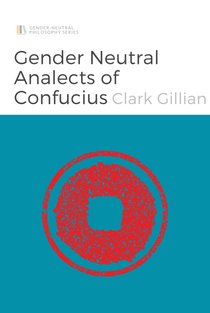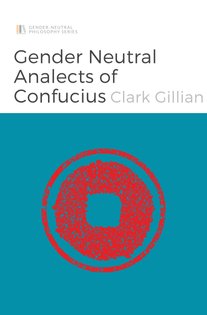The analects of Confucius
Lúnyǔ / 論語
🧧
孔子謂季氏
八佾舞於庭,
是可忍也,
孰不可忍也?
One day when Confucius saw eight rows of dancers dancing in a ceremony, he said:
I still wonder what this family is trying to prove with such an exaggerated number of dancers.
🧧
三家者以雍徹。
子曰
相維辟公,
天子穆穆,
奚取於三家之堂?
Now there were three important families who at one point in a ceremony sang a hymn.
As the ritual instruments were then removed, Confucius also knew the words by heart and sang a few lyrics aloud.
“The Princes perform the ritual, the Emperor is sincere and solemn.”
And then he asked:
But what in Heaven’s name do princes and emperors have to do with these three families?
🧧
子曰
人而不仁,
如禮何?
人而不仁,
如樂何?
Said Confucius:
How can one lead rituals without understanding humanity?
A man without humanity cannot understand music.
🧧
林放問禮之本。
子曰
大哉問!
禮,
與其奢也,
寧儉;
喪,
與其易也,
寧戚。
Someone then asked Confucius what was the most important thing to pay attention to during ceremonies.
What Confucius said:
A great question!
During parties it is better to be simple than extravagant.
At funerals, it's better to be extravagant than simple.
🧧
子曰
夷狄之有君,
不如諸夏之亡也。
Said Confucius:
The cult of the prince personality still exists to the north and east of our country.
We no longer deal with that.
🧧
季氏旅於泰山。
子謂冉有曰
女弗能救與?
對曰
不能。
子曰
嗚呼!
曾謂泰山,
不如林放乎?
Now there was a certain person who wanted to make a sacrifice on Mount Tai.
What Confucius said:
This ritual was designed for the Emperors of old. Is there no one who can stop this person?
The answer was:
No.
Confucius said to this:
That poor mountain.
🧧
子曰
君子無所爭,
必也射乎!
揖讓而升,
下而飲,
其爭也君子。
What Confucius said:
He who studies virtue does not argue.
Now if something happens that really can't be made up, wouldn't it be best to have a duel?
But the rules of a duel demand that the participants respect them, and in the lead up to the duel they will concentrate and prepare rigorously.
In this way there is once again virtue to be found in their quarrel.
🧧
子夏問曰
巧笑倩兮,
美目盼兮,
素以為絢兮。
何謂也?
子曰
繪事後素。
曰
禮後乎?
子曰
起予者商也!
始可與言詩已矣。
Someone asked Confucius:
What does this part of the Book of Odes mean?
“A cute smile with dimples;
A stolen look full of elegance;
the purest silk ready for coloring.”
What Confucius Said:
Paintings always start with a completely blank banner.
Again a question was asked:
And what is the meaning of the blank banner?
Confucius then said:
It is only with you that I can really speak about what the Book of Odes means.
🧧
子曰
夏禮,
吾能言之,
杞不足徵也;
殷禮,
吾能言之,
宋不足徵也。
文獻不足故也,
足則吾能徵之矣。
Said Confucius:
I could talk more about the rituals of each subsequent dynasty,
However, much is lost due to each dynasty's,
lack of scholars,
prevented further study,
due to loss of knowledge.
🧧
子曰
禘自既灌而往者,
吾不欲觀之矣。
The Master said:
Everything that follows the sacrifices of the Imperial Opening Ceremony today is almost unbearable.
🧧
或問禘之說。
子曰
不知也。
知其說者之於天下也,
其如示諸斯乎!
指其掌。
And someone asked what the meaning was of the Imperial Sacrifice ritual.
Said Confucius:
I have no idea.
The person who knew its meaning could rule a country as easily as we can see our palms.
🧧
祭如在,
祭神如神在。
子曰
吾不與祭,
如不祭。
Sacrifice to the dead as if they were there.
Sacrifice to the spirits as if they were there.
Said Confucius said:
If, during the sacrifice, I’m not wholeheartedly present,
Then I might as well stop with the whole ritual.
🧧
王孫賈問曰
與其媚於奧,
寧媚於竈,何謂也?
子曰
不然,
獲罪於天,
無所禱也。
Someone asked Confucius about the expression:
“Respect the kitchen stove rather than the family altar.”
Confucius disagreed:
One who cannot respect Heaven cannot respect any human being.
🧧
子曰
周監於二代,
郁郁乎文哉!
吾從周。
Said Confucius:
The Zhou dynasty had the advantage of relying on the knowledge of the previous two dynasties!
So complete and elegant were their laws and rules!
I follow the Zhou.
🧧
子入大廟,
每事問。
或曰孰謂鄹人之子知禮乎?
入大廟,
每事問。
子聞之曰
是禮也。
One day Confucius went to a great temple and asked questions about anything and everything.
Now there was someone who said:
“Don’t they always say that Confucius knows all about decency and respect?
But the minute he walked into the temple until now he has done nothing else but ask questions!”
Confucius heard this and replied:
This is just part of decency.
🧧
子曰
射不主皮,
為力不同科,
古之道也。
Said Confucius:
Not everyone has the same strength.
The point of archery isn't how deep you pierce the target.
Herein lies the way of the ancients.
🧧
子貢欲去告朔之餼羊。
子曰
賜也,
爾愛其羊,
我愛其禮。
Now it happened that someone wanted to stop sacrificing sheep every first day of the month.
What Confucius said was:
You like the sheep, I like the ritual.
🧧
子曰
事君盡禮,
人以為諂也。
Said Confucius:
People will call it flattery if you regularly show respect to your superiors.
🧧
定公問
君使臣,
臣事君,
如之何?
孔子對曰
君使臣以禮,
臣事君以忠。
A duke asked how ministers should be appointed and how ministers should best do their jobs.
Said Confucius:
A minister should be appointed according to the rules of propriety, and ministers should serve with confidence who appointed them.
🧧
子曰
關雎,
樂而不淫,
哀而不傷。
What Confucius Said:
The Book of Songs speak of joy without being licentious, and of sorrow without torment.
🧧
哀公問社於宰我。
宰我對曰
夏后氏以松,
殷人以柏,
周人以栗,
曰使民戰栗。
子聞之曰
成事不說,
遂事不諫,
既往不咎。
Someone asked about the altars across the land.
The answer was:
“The king of the Xia dynasty is said to have planted the pine trees around them;
The people of the Yin dynasty would have planted the cypress trees and the people of the Zhou dynasty planted the hazel trees;
All to give a solemn atmosphere to the altar.”
When Confucius heard this, he said:
It is useless to speculate about decisions that have already been made and fully implemented.
🧧
子曰
管仲之器小哉!
或曰
管仲儉乎?
曰
管氏有三歸,
官事不攝,
焉得儉?
然則管仲知禮乎?
曰
邦君樹塞門,
管氏亦樹塞門;
邦君為兩君之好,
有反坫,
管氏亦有反坫。
管氏而知禮,
孰不知禮.
Confucius was not pleased with a particular duke. What he said was:
The Duke is really bad!
But isn't the Duke very frugal?
He has three different houses with guards.
But doesn't the duke follow the rules of decency and etiquette?
Confucius then said:
According to the custom, only a king may hide his fence behind trees, not a duke.
When a king receives guests and toasts to friendship, the etiquette is that afterward they place their cups on a dedicated wooden stand.
The duke also bought one.
He knows the customs indeed!
But only to abuse them.
🧧
子語魯大師樂。
曰
樂其可知也:
始作,
翕如也;
從之,
純如也,
皦如也,
繹如也,
以成。
Confucius said to a music master:
It must be known in advance how the music should be played.
When the music starts, all the instruments should start playing at the same time.
Once the music is playing, the instruments sound best in harmony with each other when their own sound is crisp and clear.
They have to keep playing until the very end.
🧧
儀封人請見。
曰
君子之至於斯也,
吾未嘗不得見也。
從者見之。
出曰
二三子,
何患於喪乎?
天下之無道也久矣,
天將以夫子為木鐸。
A border guard asked to speak with Confucius, saying:
All the people of great virtue who have passed here to converse with the Master have never lost the opportunity to come and chat with me too.
Now I would like to speak with the Master himself.
Confucius's disciples agreed and brought the guard to him.
When he finally came back out of the tent after the conversation, he said to the disciples:
You must rejoice! For a long time the great teaching under heaven was unknown.
But now heaven is going to use your master like the clapper of a bell!
🧧
子謂韶,
盡美矣,
又盡善也。
謂武,
盡美矣,
未盡善也。
Confucius said that in the time of Emperor Shun (whose predecessor abdicated to him due to his exceptional virtue) the music was perfect in its beauty and also perfect in depth.
He said that the music at the time of Emperor Wu (who had killed his predecessor to take the throne) was perfect in beauty, but not in depth.
🧧
子曰
居上不寬,
為禮不敬,
臨喪不哀,
吾何以觀之哉?
What Confucius also said:
High posts without great generosity, ceremonies no one appreciates, mourning without grief—what am I to make of all these things?
🧧




